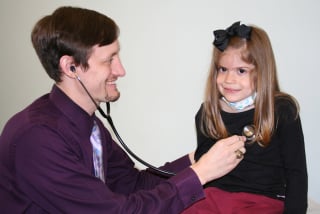Pompe disease is caused by a deficiency of the enzyme alpha-glucosidase (GAA), an enzyme that at normal levels will break down glycogen in the body. Infantile-onset Pompe disease is characterized by hypotonia, generalized muscle weakness and hypertrophic cardiomyopathy. Death generally occurs within the first year of life due to cardiac and respiratory failure. The later-onset form shows greater variability with a slowly progressive muscle weakness and respiratory insufficiency. The degree of enzyme deficiency is generally related to the severity and age of onset. Glucose tetrasaccharide, also known as Glc4 or Hex4, is used as a biomarker to evaluate the clearance of glycogen from cells. Analysis of glucose tetrasaccharide in urine can be used to monitor the effectiveness of enzyme replacement therapy.
10 days
82570 & 83789
$202
Pompe disease is caused by a deficiency of the enzyme alpha-glucosidase (GAA), an enzyme that at normal levels will breakdown glycogen in the body. Infantile-onset Pompe disease is characterized by hypotonia, generalized muscle weakness and hypertrophic cardiomyopathy. Death generally occurs within the first year of life due to cardiac and respiratory failure. The later-onset form shows greater variability with a slowly progressive muscle weakness and respiratory insufficiency. The degree of enzyme deficiency is generally related to the severity and age of onset.
Biomarker analysis of Glc4 can be used to monitor disease progression for affected individuals including those receiving enzyme replacement therapy.
Liquid chromatography-tandem mass spectrometry.
At least 3 ml of a random catch sample of urine is needed for Pompe disease monitoring.
Urine samples should be frozen after collection. Samples must be sent frozen via overnight delivery or courier, preferably on dry ice.
Call our laboratory at 1-800-473-9411 or contact one of our Laboratory Genetic Counselors for assistance.
Robin Fletcher, MS, CGC
Falecia Thomas, MS, CGC
Alex Finley, MS, CGC
